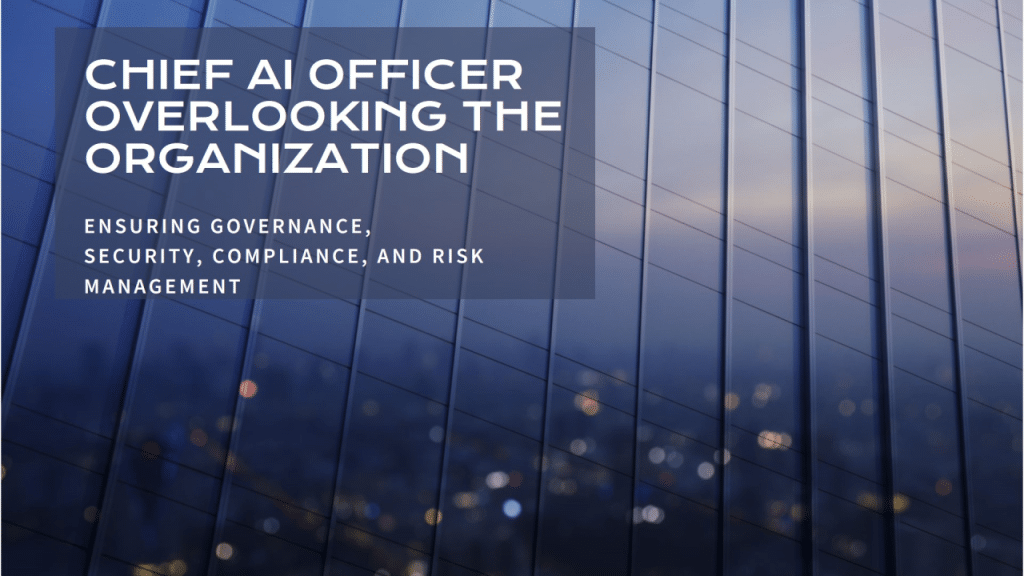The rise of a new title – Chief AI Officer

AI is shaking organizations at their core. Traditional businesses are seeing a threat from new players entering the scene with new business models, and these traditional businesses do not know how to react to it. There is nothing new that businesses are being disrupted, but what is new is that the pace of disruption is increasing, and this is partly due to AI. The executive suite is perplexed about what to do with the rapid change and how to react to the change.
I have experienced a couple of disruptions in my career concerning technology. The first one was when we moved from minicomputers to client/server architectures, and the second major transition, which is, in fact, still going on, is the move from on-premises architectural models to the cloud. Some organizations still believe that they are better off maintaining their own infrastructure, security, etc., and have no plan to move to the cloud.
The third wave, and I believe the biggest I have seen in my career, is the AI wave. It has taken many organizations by surprise and has also created new roles and opportunities for people.
A recent article from ZDNet authored by Joe McKendrick discusses the title "Chief AI Officer" (CAIO), which refers to AI initiatives at the executive level. This role is in addition to that of the chief information officer, chief digital officer, chief data officer, and chief analytics officer.
According to Constellation Research Andy ThurAI, the CAIO role has a broader reach and is spread horizontally across the organization. They deal with "governance, security, compliance, legal, risk management, business, and line-of-business units that generally never get exposed to the other tech side."
What is fascinating is the claim by Andy Thurai that "AI inherently requires a deep understanding of emerging technology, potential CAIOs should have an even stronger foundation in the business. "They don't have to be data scientists, which would probably work against the goals of this role".
The CAIO or AI leader is assumed to carry the following responsibilities:
✅Manage expectations for AI
✅Make sure resource needs are orchestrated
✅Measure impact with finance and operations teams
✅Ensure ethical and legal practices are followed
✅Orchestrate design, creation, testing, and deployment of AI with IT leaders
Based on the experience I have with running companies in different roles (Chairman, CEO, CTO, CIO), I think it is logical to have the role of CAIO as there is no way, for example, a CIO can cover all the different aspects of what AI brings along (unless the CIO has a big team).
Also, it is important to recognize that there is no such thing as an "AI Strategy" without first having a business strategy. AI should not be the one driving the strategy; business drivers are what make AI either a success or a failure. It has always been the same that technology is seldom what goes first and has to be in alignment with the business strategy.
Organizations are evolving, careers are changing, titles within organizations are disappearing, and new ones are appearing due to AI. What you want to ensure is that yours is not on the disappearing list and that you are prepared and educated with AI in your current and future roles.
Yours,
Dr. Petri I. Salonen
PS. If you would like to get my business model in the AI Era newsletters to your inbox on a weekly or bi-weekly basis, you can subscribe to them here on LinkedIn https://www.linkedin.com/newsletters/business-models-in-the-ai-era-7165724425013673985/
